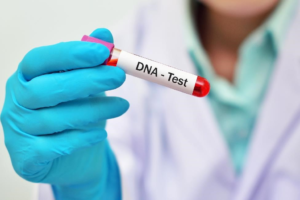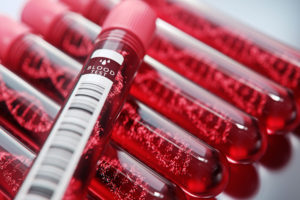Behcet’s Disease Plasma & Serum Samples
Bay Biosciences provides high quality, clinical grade bio-samples, biopsy tissue samples, FFPE tissue blocks, sera (serum), plasma and peripheral blood mononuclear cells (PBMC) biofluid specimens from patients diagnosed with Behcet’s syndrome.
The sera (serum), plasma and PBMC biofluid specimens are processed from Behcet’s syndrome patient’s peripheral whole-blood using customized collection and processing protocols.
The Behcet’s syndrome tissue and matched biofluid samples are collected from unique patients diagnosed with Behcet’s Syndrome and are provided to a valued pharmaceutical customer for research, diagnostics, discovery and drug development.
Detailed clinical data, Behcet’s syndrome patient’s history, symptoms, complete blood count (CBC), serology, MRI, biopsy tissue, histopathology, elevated biomarker levels, genetic and metabolic data associated with Behcet’s syndrome specimens is provided to a valued customer for research, development and drug discovery.
The Behcet’s syndrome sera (serum), plasma and peripheral blood mononuclear cells (PBMC) biofluids are processed from patients peripheral whole-blood using customized collection and processing. protocols.

Behcet’s Syndrome Overview
Behcet’s disease (BD) is a long term (chronic) type of inflammatory disease which affects multiple parts of the body. The most common symptoms include painful mouth sores, genital sores, inflammation of parts of the eye, and arthritis. The sores typically last a few days. Less commonly there may be inflammation of the brain or spinal cord, blood clots, aneurysms or blindness.
Often, the symptoms come and go. caused by vasculitis (blood vessel inflammation), which will affect and damage both the arteries and veins. Anyone can develop this disease at any age, though symptoms usually begin to appear between the ages of 20 and 30. Men and women are equally affected.
Signs and Symptoms of Behcet’s Syndrome
Following are the common symptoms of Behcet’s disease:
- Mouth sores and genital sores that keep coming back.
- Skin and joint pain.
- Inflammation in the eyes.
- The brain, nerves, lungs
- Intestinal tract and kidneys
Behçet’s disease disease affects every patient differently. Following are some of the most commonly affected areas of the body:
- Mouth sores occur at some time in all patients. They’re usually keep coming back and are painful and affect almost all patients with Behçet’s disease.
The sores look like the common canker sore, but are more numerous, frequent and painful. They’re often the first symptom that a person notices, and may occur long before any other symptoms appear.Mouth ulcers are seen on the lips, tongue and inside the cheek.
- Genital sores look similar to mouth sores and may be painful. They aren’t as common as mouth sores. They appear on the scrotum (the sack enclosing the testes) in men and on the vulva (the external genital organs) in women.
- Eye inflammation can cause pain, blurry vision, light sensitivity, tears or eye redness.Behcet’s disease may eventually lead to vision loss. Severe eye disease that can cause blindness is more common in the Middle East and Japan than in the United States.
- Skin problems are a common symptom. They may look like acne or tender, coin-shaped nodules (erythema nodosum), or ulcers that may be shallow or deep and painful. A red bump or sore may develop if the skin is scratched or pricked.
- Joint pain is a common symptom of Behcet’s disease. The ankles, knees, elbows and hips are most often affected. Joint inflammation causes swelling, redness and tenderness, though it usually doesn’t cause permanent damage.
- Vein Inflammation can lead to clots and blockages, or cause a vein to close completely. It can affect both superficial veins (those close to the surface of the skin) and deep veins.It may also affect the largest vein in the body (the vena cava), which could lead to serious health problems. These vein problems are caused by inflammation, not a flaw in the body’s clotting system.
- The brain, particularly the meninges (the brain’s covering), could also be affected.Symptoms of inflammation in the brain include fever, headache, a stiff neck and difficulty coordinating movement. A stroke is also possible, which occurs when blood vessels in the brain are either blocked or ruptured.
- Gastrointestinal (GI) tract features include abdominal pain or blood in your stool, caused by lesions similar to those seen in the mouth and genital area.Lesions in the GI tract are more dangerous because they can cause the intestine to bleed and/or rupture.
- Other organs, like the lungs or kidneys, and large vessels (such as the aorta) can also sometimes be affected.
Causes of Behcet’s Syndrome
Exact causes of developing Behçet’s disease are unknown. It could be an autoimmune disease, which means the body’s immune system mistakenly attacks healthy tissue with an inflammatory response.
Both HLA-B5 and HLA-B51 are gene markers that are sometimes present in Behçet’s disease patients. But there are some patients who have this gene marker who don’t have Behçet’s disease.
Researchers are studying other genes related to immune function and think that infections created by either bacteria or a virus may play a role in triggering the disease in some patients who have genetic markers that predispose them to Behçet’s disease.
Genetic and environmental factors are both likely factors in the development of Behçet’s disease.
Risk Factors of Behcet’s Syndrome
Several different groups of patients are more likely to develop Behcet’s disease than others. Following are some of the factors that increase the risk of developing Behcet’s disease:
- Patients who live in the parts of the world where this Behcet’s disease is prevalent.
- Patients who are 20-40 year old.
- Patients with specific genes, since HLA-B5 or HLA-B51 are present in some of the patients.
- Male patients are at higher risk of developing Behcet’s disease than female patients.
Diagnosis of Behcet’s Syndrome
There is no single laboratory test that can diagnose Behcet’s disease. The diagnosis is usually made based on the patient’s symptoms, including how often oral ulcers come back which are usually at least three times a year. In addition at least two more of the following symptoms are present:
- Genital sores
- Eye inflammation
- Skin problems
- A positive pathergy test (a pathergy test tests the immune system’s functionality; it’s performed by pricking the skin and then checking to see if a red bump develops a few days after the test).
To make the correct diagnosis, other illnesses that produce mouth sores and closely resemble Behcet’s disease need to be ruled out.
Doctors may conduct blood tests, which can help rule out some of these other conditions, including systemic lupus erythematosus, Crohn’s disease and other forms of vasculitis.

Bay Biosciences is a global leader in providing researchers with high quality, clinical grade, fully characterized human tissue samples, bio-specimens and human bio-fluid collections.
Samples available are cancer (tumor) tissue, cancer serum, cancer plasma cancer PBMC and human tissue samples from most other therapeutic areas and diseases.
Bay Biosciences maintains and manages its own bio-repository, human tissue bank (biobank) consisting of thousands of diseased samples (specimens) and from normal healthy donors available in all formats and types.
Our biobank procures and stores fully consented, deidentified and institutional review boards (IRB) approved human tissue samples and matched controls.
All our human tissue collections, human specimens and human bio-fluids are provided with detailed samples associated patient’s clinical data.
This critical patient’s clinical data includes information relating to their past and current disease, treatment history, lifestyle choices, biomarkers and genetic information.
Patient’s data is extremely valuable for researchers and is used to help identify new effective treatments (drug discovery & development) in oncology, other therapeutic areas and diseases.
This clinical information is critical to demonstrate their impact, monitor the safety of medicines, testing & diagnostics, and generate new knowledge about the causes of disease and illness.
Bay Biosciences banks wide variety of human tissue samples and biological samples including cryogenically preserved at – 80°C.
Including fresh frozen tissue samples, tumor tissue samples, FFPE’s, tissue slides, with matching human bio-fluids, whole blood and blood derived products such as serum, plasma and PBMC’s.
Bay Biosciences is a global leader in collecting and providing human tissue samples according to the researchers specified requirements and customized, tailor-made collection protocols.
Please contact us anytime to discuss your special research projects and customized human tissue sample requirements.
Bay Biosciences provides human tissue samples (human specimens) from diseased and normal healthy donors which includes:
- Peripheral whole-blood,
- Amniotic fluid
- Bronchoalveolar lavage fluid (BAL)
- Sputum
- Pleural effusion
- Cerebrospinal fluid (CSF)
- Serum (sera)
- Plasma
- Peripheral blood mononuclear cells (PBMC’s)
- Saliva
- Buffy coat
- Urine
- Stool samples
- Aqueous humor
- Vitreous humor
- Kidney stones (renal calculi)
- Other bodily fluids from most diseases including cancer.
We can also procure most human bio-specimens and can-do special collections and requests of human samples that are difficult to find. All our human tissue samples are procured through IRB approved clinical protocols and procedures.
In addition to the standard processing protocols Bay Biosciences can also provide human plasma, serum, PBMC bio-fluid samples using custom processing protocols, you can buy donor specific sample collections in higher volumes and specified sample aliquoting from us.
Bay Biosciences also provides human samples from normal healthy donors, volunteers, for controls and clinical research, contact us Now.
日本のお客様は、ベイバイオサイエンスジャパンBay Biosciences Japanまたはhttp://baybiosciences-jp.com/contact/までご連絡ください。


